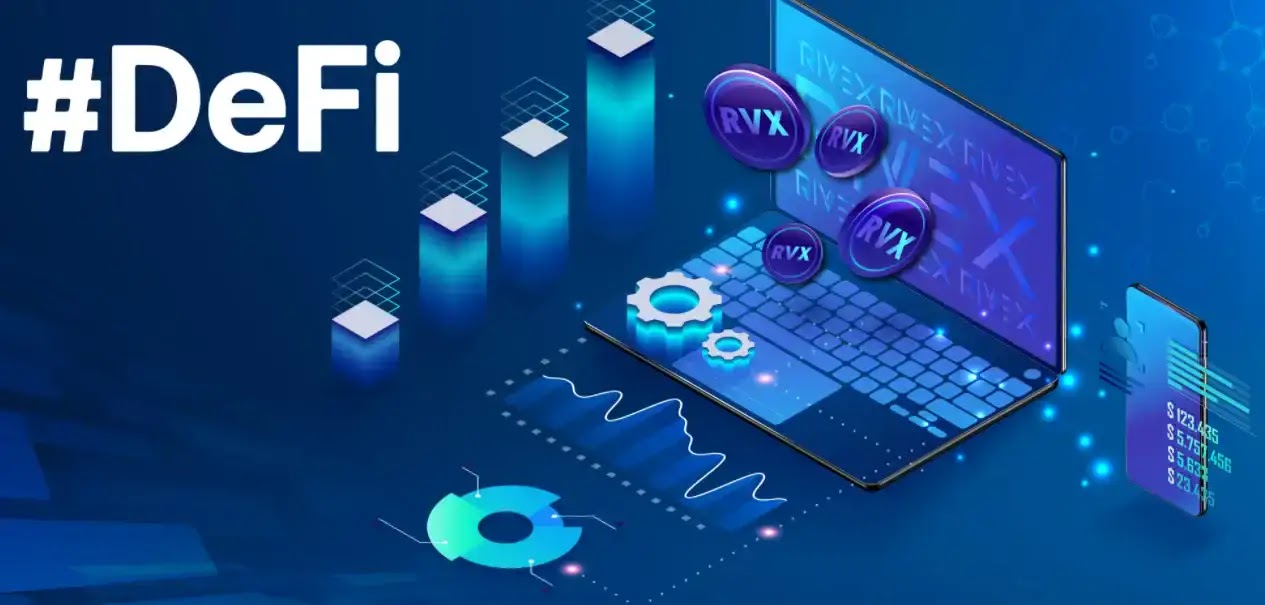DeFi or Decentralized Finance, is a relatively new area of the cryptocurrency world that aims to sustainably transform the financial services, mainly by eliminating financial intermediaries. Find out in this article what is DeFi, what are the most popular applications based on Decentralized Finance and how you can take benefit from it.
The DeFi - What Is Decentralized Finance ?
DeFi (Decentralized Finance), brings together many decentralized applications - dApps - based on blockchain and aimed at reshaping the access and use of traditional banking and financial tools and services.
The central idea is to create an alternative decentralized and transparent financial and monetary system that transcends the limits of the current system by giving control back to users through the removal of intermediaries or central control bodies.
Since it is blockchain-based, DeFi offers peer-to-peer and decentralized banking and financial services. They are therefore without intermediary, instantaneous, immutable, transparent, much faster and cheaper than traditional services.
Different Types Of Defi Applications
Many types of applications have emerged with decentralized finance, which allow individuals to take advantage of new or existing services, but this time without intermediaries and at unbeatable prices.
Borrowing & lending platforms
These platforms use smart contracts to manage borrowing and lending transactions automatically and without intermediaries (you can easily and quickly borrow crypto funds or earn interest by lending your crypto currencies).
Flash Loans? DeFi's Instant Loans
These instant loans without consideration are repaid in a single transaction.
Decentralized Exchanges (DEX)
These platforms act as an online exchange connecting buyers and sellers of digital currencies.
Staking
It is the action of locking in a certain amount of tokens to obtain passive income, much like a savings account.
The stablecoins
Stablecoins are cryptocurrencies with a stable value tied to another asset, usually a popular fiat currency like the US dollar.
Yield farming
This is about optimizing the returns on your cryptocurrency investments through several staking and lending strategies.
Trade Asset Tokenization
This is the possibility of decentralized trading in derivatives or tokens representing assets such as stocks for example.
Prediction markets
It is about monetizing one's ability to predict a future outcome or event.
Interoperability & Composability (Composability)
It is the ability to choose and assemble certain components of several dApps to create a new one.
How To Take Advantage Of The Decentralized Finance (DeFi) Sector?
The DeFi sector is creating a promising alternative ecosystem to the current banking and financial system. It offers fairer, more free, almost instant transactions at a lower cost. DeFi also seeks to make financial markets more open.
All of these features offer many opportunities that you can take advantage of by earning passive income through loans, staking, liquidity pools or yield farming, or by investing in DeFi tokens.
What Are The Tokens Of The Decentralized Finance (DeFi)?
The arrival of Ethereum and smart contracts, or smart contracts, in 2015, took the industry in a new direction. While Bitcoin was essentially created to become a decentralized peer-to-peer payment method, Ethereum goes further.
It offers a platform for creating decentralized applications (dApps) and setting up smart contracts. These are programs encoded on the blockchain that run automatically when predetermined conditions are met.
This is why this token has grown in importance in recent years and now ranks 2nd among the largest tokens by market capitalization. Another reason for the recent success of this token is the growing popularity of the DeFi sector with investors, because it should be noted that the majority of DeFi projects are created on the Ethereum protocol.
Investing in Ethereum can be a way to support the DeFi industry. There are, however, many other DeFi tokens that you can purchase such as the following:
- Maker (MKR);
- Chainlink (LINK);
- Polkadot (DOT);
- Augur (REP);
- Uniswap (UNI);
- PancakeSwap (CAKE);
- Curve Finance;
- finance (YFI);
- Synthetic (SNX)
- Compound (COMP);
- 0x (ZRX);
- DAI (DAI);
- Aave (AAVE);
- Avalanche (AVAX);
- The Graph (GRT).
Investing In DeFi (Decentralized Finance) : Is It Risky?
If you want to take advantage of this promising and profitable new sector, know that it is not without risks! There are indeed several types of risks that you must take into account.
Risks associated with lack of research and knowledge
The level of knowledge of investors / users is often insufficient to invest with full knowledge of the facts.
The risks of piracy
Thefts and hacks are more and more frequent and important in the DeFi industry (see the story of the Poly Network).
Technological risks
There are many potential problems in the app / smart contract code and one can even fear a possible blockchain failure.
Risks associated with price instability and volatility
The volatility of crypto assets leads to large potential variations in the value of your crypto-investments.
Risks related to fees
The large fluctuation in transaction fees on some blockchains like Ethereum can make your transactions expensive and reduce your final profit.
Risks associated with new products
There is still little history on the performance of some products or the way they work.
Remember, this is a new industry with little regulation, which means you will not have access to any protection. Since these products and services are blockchain-based, there is no turning back once you have completed your transactions, as they are immutable.
It is therefore necessary that you do in-depth research to choose the project you want to support, or the service you want to take advantage of, as well as the platform you will use for it, in order to avoid unnecessary risks, scams or hacks.


